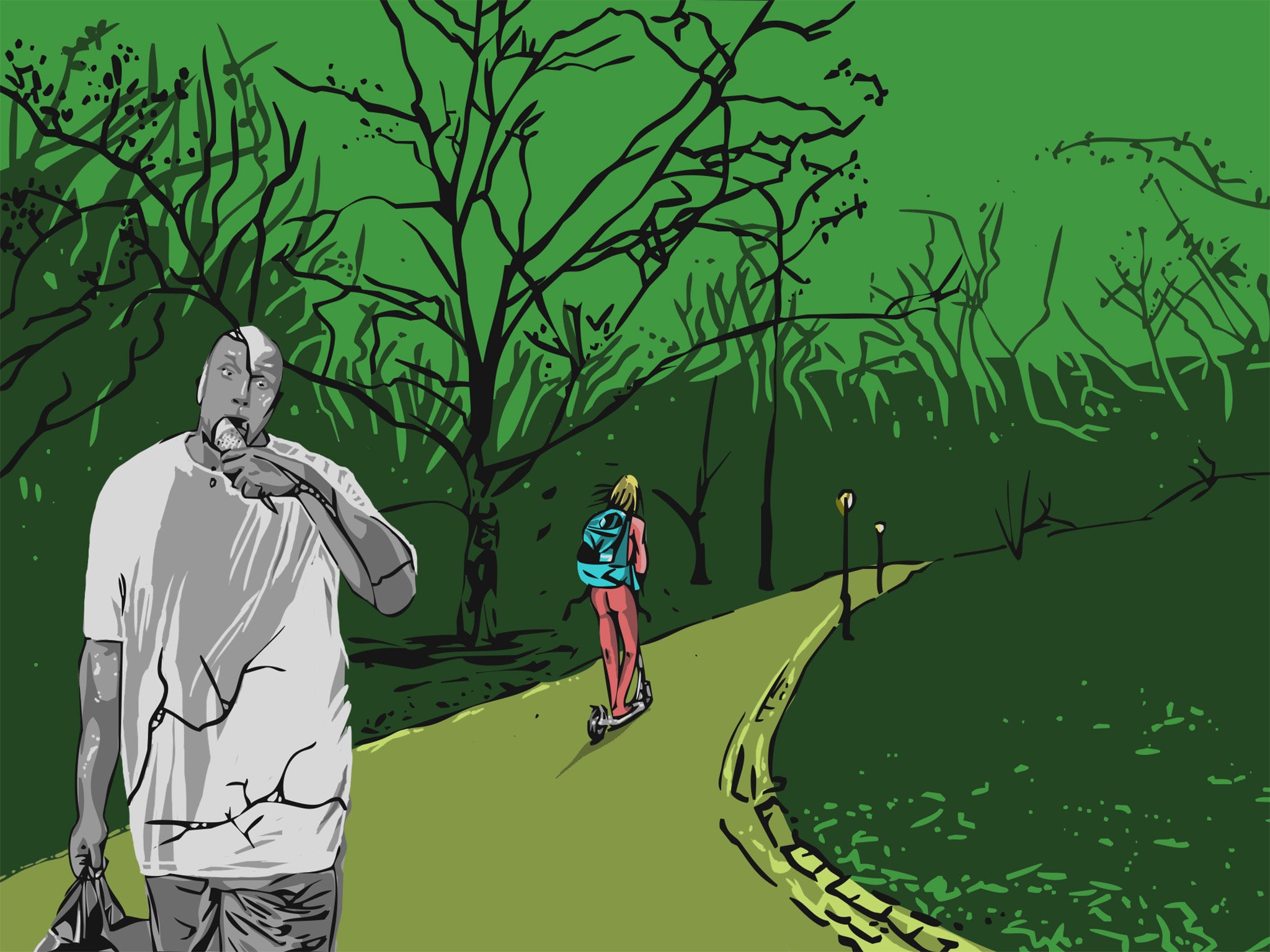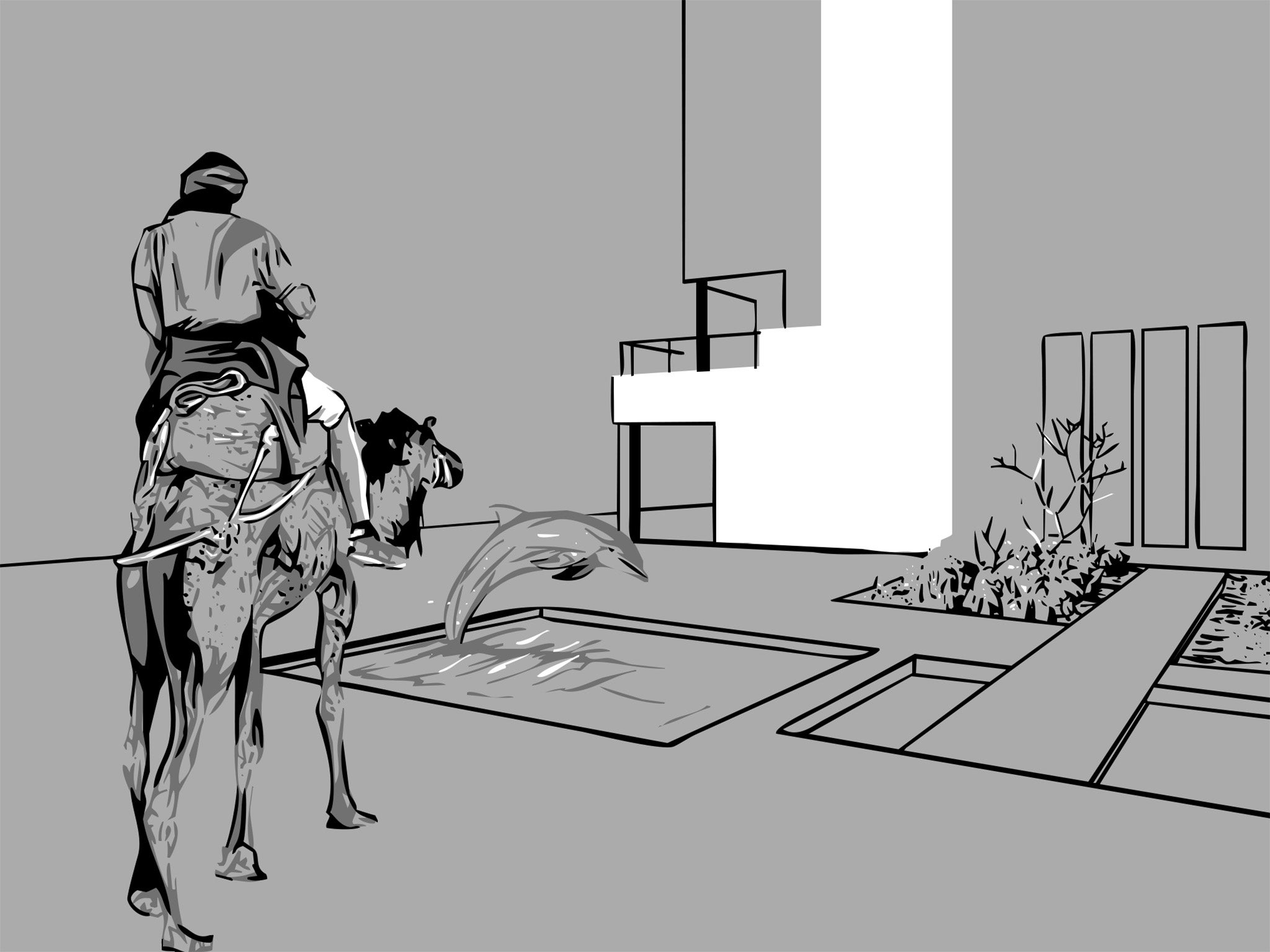How old are you is a highly sensitive topic
You can't ask me that! Continuing her series tackling socially unacceptable questions, Christine Manby looks at our changing relationship with our own age

Your support helps us to tell the story
From reproductive rights to climate change to Big Tech, The Independent is on the ground when the story is developing. Whether it's investigating the financials of Elon Musk's pro-Trump PAC or producing our latest documentary, 'The A Word', which shines a light on the American women fighting for reproductive rights, we know how important it is to parse out the facts from the messaging.
At such a critical moment in US history, we need reporters on the ground. Your donation allows us to keep sending journalists to speak to both sides of the story.
The Independent is trusted by Americans across the entire political spectrum. And unlike many other quality news outlets, we choose not to lock Americans out of our reporting and analysis with paywalls. We believe quality journalism should be available to everyone, paid for by those who can afford it.
Your support makes all the difference.If you’re ever stuck for an ice-breaker in a room full of six-year-olds, there’s one question guaranteed to get them all talking: “How old are you?” Especially if you follow it up with a wildly inaccurate guess.
“Let me see. You’re 15, right?” you suggest to the child celebrating the beginning of a seventh trip around the sun.
“Noooo!” they’ll cry. They may even slap their own forehead at your stupidity. “I’m six!”
They will then fill you in on the ages of the children around them, in relation to their own age and with great precision.
“He’s six months younger than me. She’s only two. She’s seven and three days...”
Et cetera. If you’re lucky, they’ll then start going through the ages of the attending adults before making their own wildly inaccurate guess about your vintage.
“A hundred?”
Discussing age with the under-10s is always appropriate. In fact, if you don’t ask, they will. When every passing year means a party where you get presents you actually want, rather than a scented candle from the White Company, birthdays hold no fear. There’s a real sense of achievement in “reaching double figures” at 10, in turning “sweet 16”, in getting your driving license at 17, in gaining the right to “forget” to vote a year later. And how about turning 21? “Key to the door”, as they used to say when a 21-year-old could actually buy a house.
After that, it starts to get murky. Once you’re out of early childhood, you’re told it’s rude to ask. Perhaps it’s because by the time you’ve left formal education, age is no longer just a number. Suddenly, it becomes a measure of how far you’ve come. Or not.
The internet is full of lists entitled “things to do by the time you’re 30”. Travel the world. Kiss a dolphin. Buy a house. Marry an oligarch. (You’ll need to do those last two the other way round.)
If you find those lists uncomfortable, wait until you’re pushing 40 and the tone changes from aspirational to prescriptive. Forget “things to do before you’re 40”. Now it’s “things you must never do again”. These include wearing a miniskirt, riding a scooter and streaking (for fear of turning anyone who sees your aged flesh to stone).
As for dating. Over 40 and on the internet? Forget it. You’re going to need to lop off a decade to have any chance of a match. But the dating sites are on to you. By forcing their members to connect via Facebook, they’re intent on creating more transparency about such things as real names and ages.
Ah well. Bestlifeonline.com, the website which proscribes streaking for the over-40s, is definitive about Tinder: “If you’re over 40, we’d advise you to avoid Tinder like the plague. After all, it’s a young person’s space – period – and you should respect it as such.” (Bestlifeonline.com also suggest that you shouldn’t avoid the dentist. Even if you did meet him through a dating site, where he was lying about his age.)
Thank goodness people do still randomly meet in dark bars. All you have to do then is make sure they don’t see your passport while you’re on that mini-break to Barcelona.
Joking aside, it’s perhaps heartening to hear that the reason people on Tinder are uptight about age is because most of them are actually looking for love rather than a hook-up. They’re looking for “the one” with whom they can settle down and have a family. Alas, much as we’d like to deny it, age still is a factor when it comes to fertility. That said, I give you Rachel Weisz. Newly up the duff and nearly 50. Or how about Maria del Carmen Bousada de Lara? Sixty-six and 358 days. She had twins.
When it comes to looking for work, it’s more complicated. You don’t suddenly become unable to drive a bus when you hit 36 and there are laws in place that reflect that. A prospective employer is only allowed to ask your age if you must be a certain age to do the job you’re applying for. For example, if it includes selling alcohol. If there’s no legal reason why you need to be above a certain age, they can’t ask for your date of birth on the application form.

The Equality Act 2010 made it unlawful to discriminate against employees, job seekers and trainees because of age. According to the act, there are four types of discrimination. Three are described as “direct”. They include treating someone “less favourably” because of their actual age, their perceived age or the age of someone with whom they associate. You can’t “joke” about age either.
In 2016, Alan Dove, 61, nicknamed “Gramps” by a younger colleague, was awarded more than £63,000 in an age discrimination case against his employers Brown and Newirth. The sum included a payment for “injury to feelings”.
The fourth type of age discrimination is “indirect”. The arbitration service Acas describes it as occurring “where there is a policy, practice, procedure or workplace rule which applies to all workers, but particularly disadvantages people of a particular age” – such as asking for job applicants with 10 years’ experience, which disadvantages younger people. Indeed in 2007, 20-year-old Megan Thomas won a discrimination case after being dismissed from her job at an exclusive London club because her employers thought she was too young to deal with their members.
Why is age so important to us? In 2015, Gillian Connor, head of external affairs at Hanover, which provides affordable homes for older people, suggested: “I think that older age is still seen as a shorthand for ill-health, inactivity and decline and therefore that stereotype can prevail. There is also an unhelpful stereotype of older people as being anti-youth. There is such brilliant diversity in older age now – you really can’t generalise.”
Will perceptions change as the proportion of people over retirement age increases? As retirement age itself increases? When I was born, retirement age for women in the UK was 60. In 2028, it will be 67.
It seems to me that a big part of the problem is that age is relative. When I was 12, my mother told me that no matter how old she got in real terms, she always felt 18 inside her head. As a child looking at a forty-something, the idea seemed ridiculous. How could she even remember what it was like to be so young? Three decades later, I get it. I’m totally 18 in my head. But to the people around me?
A forty-something friend was playing “the hat game” with her stepchildren. In this game, everyone writes down the names of five celebrities, which are put into a hat and pulled out one by one. Your team has to guess which celeb you’re describing without your using their name. Or any words at all, in the final round. During the first round, in which you can use as many words as you like except the obvious ones, a twenty-something described a celebrity thus:
“She’s an actress. Like a really, really old one. But you still see her in films.”
Forty-something teammates jump in. “Meryl Streep? Helen Mirren? Judi Dench?”
“No. She does romantic comedies.You know who I mean. She’s really, really ancient. Like seriously so.”
“Katherine Hepburn?”
Millennial, exasperated: “No.”
“Mary Pickford the silent movie star?”
“Why would anyone make a movie without sound?”
Time runs out.
“Who is it?”
“It’s Jennifer Aniston!”
Jennifer Aniston. Glossy-haired Hollywood goddess. Forty-nine. Is that ancient now? Maybe if you convert it to dog years.
It seems you’re only as old as the person looking at you thinks you are.
So how old am I? I’m nearly 15. In tortoise years.
Christine Manby has written numerous novels including The Worst Case Scenario Cookery Club
Next week: Are you a cat person or a dog person?
Join our commenting forum
Join thought-provoking conversations, follow other Independent readers and see their replies
Comments